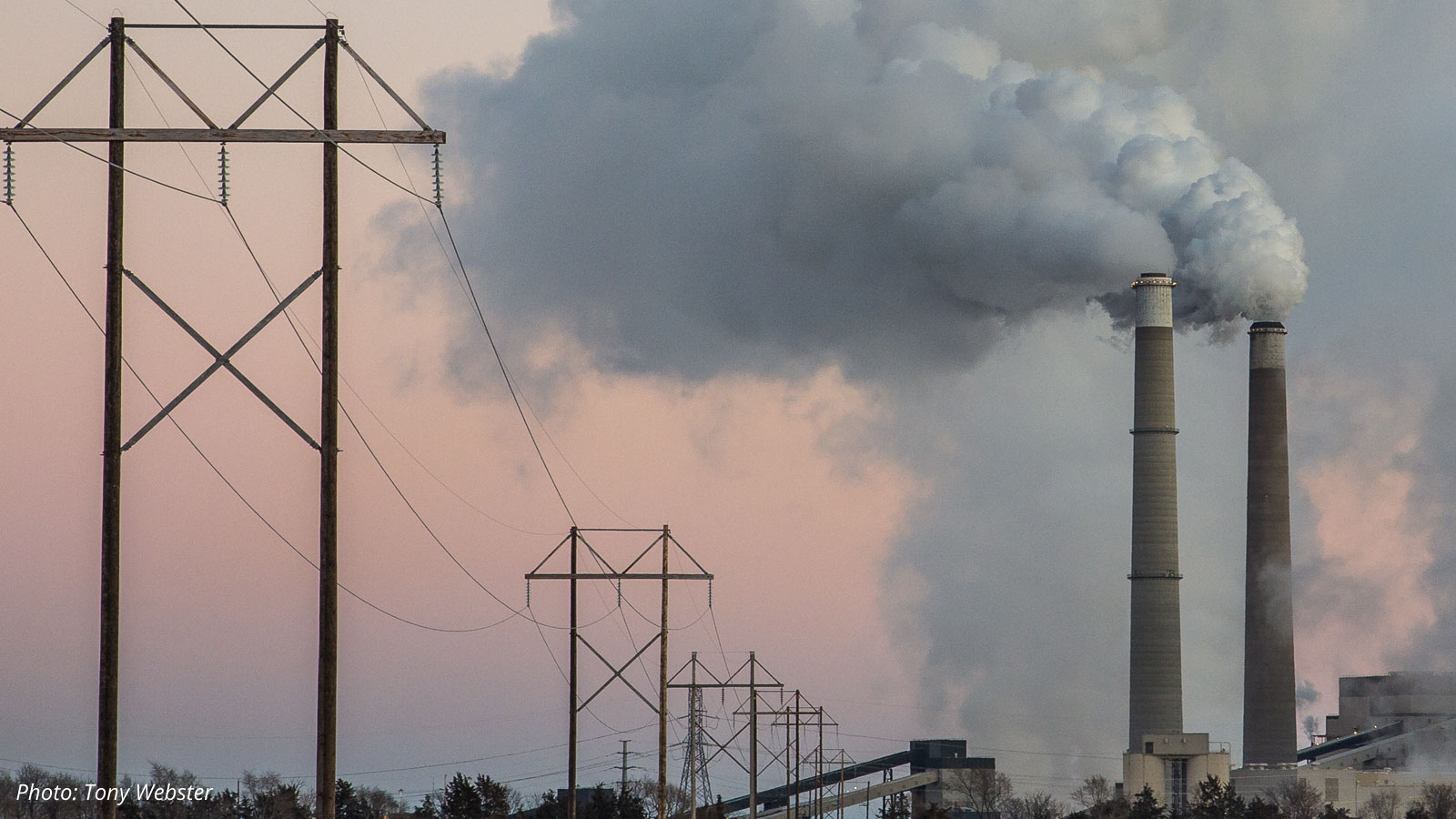TCEQ: pollution controls protect our health, environment during pandemic
Agency proposes waiving pollution control requirements at eight Texas coal-fired power plants.

On May 26, 2020, Environment Texas joined the Environmental Integrity Project, Sierra Club, and the Texas Campaign for the Environment to oppose the Texas Commission on Environmental Quality (TCEQ)’s proposal to waive pollution control requirements mandated by state implementation plans, or SIPs, for pollution events at eight Texas coal-fired power plants.
Coal-fired power plants release millions of pounds of toxic air pollution into the air, including particulate matter and nitrogen dioxide pollution. For workers and nearby community members, lax pollution controls at coal-fired power plants can increase their risk of exposure to highly toxic emissions of mercury and arsenic, which can poison the air we breathe and water we drink, increasing the risk of asthma; cancer; brain damage; heart, nervous, and lung diseases; and premature death.
SIPs are statewide and regional plans to reduce air pollution in order to meet federal air quality standards for pollutants. In Texas, industrial facilities are a large source of air pollution, and their emissions can determine a region’s compliance, or noncompliance, with the national ambient air quality standards (NAAQS). SIPs can require major industrial polluters, like coal-fired power plants, to reduce their emissions in order to improve air quality. TCEQ’s proposal to eliminate their pollution control requirements during a pandemic is reckless, and threatens the health and safety of many Texans.
Increasingly, research suggests a link between air pollution and increased vulnerability to death by COVID-19. Approximately 150 million Americans live in areas with high levels of pollution, and these areas are often hotspots of COVID-19 outbreaks. Communities of color and lower-income are more likely to live near industrial facilities, like coal-fired power plants, and are the most affected from long-term exposure to air pollution.
In addition, this proposal could create a dangerous precedent that gives TCEQ officials the ability to overstep the authority of the EPA, the Clean Air Act, and existing regulations in favor of big industry interests. These regulatory measures are intended to protect public health, not private interests. The TCEQ must be held accountable to its duty to protect our health and our environment here in Texas.
With the recent exponential jump in the number of COVID-19 cases in Texas, we need to hold TCEQ accountable for protecting all Texans, and not just the interests of industry. Environment Texas will continue to work to ensure clean air through our Texas Clean Air Project, working to reduce industrial pollution across the state.
This post was authored by Gabby Kim, a senior at Colby College and intern with Environment Texas’ Texas Clean Air Project.

